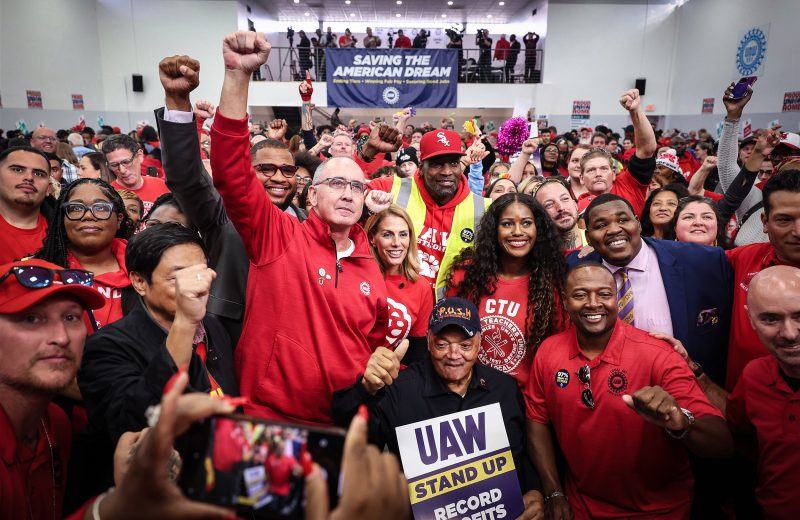After months of negotiations and several days of strikes by unionized autoworkers, the United Auto Workers (UAW) and Ford Motor Company have reached a tentative agreement on Wednesday, potentially ending the strike at the Big Three automaker.
The agreement will need to be ratified by the workers and union members, but the two sides have agreed to unspecified wage increases, lump-sum bonuses, more worker protections, and improved job security. The UAW successfully secured an indefinite hard moratorium on plant closings inside the United States—a major issue for the union—which will dictate the future of their employees.
The UAW has also secured the introduction of new product lines inside the U.S. plants, and economic commitments have also been made toMidwest locations. This ultimately will offer stability to workers who have seen plants close in recent years, or be sent to other countries for production.
The tentative agreement should also bring some confidence back to small automakers, who have felt the pressure of the Big Three’s prolonged labor dispute, as well as the general public and those who depend on the automobiles for business or basic transportation needs.
Ford Motor Company has been struggling of late, as investors have been concerned over the sales slump in North America, greater competition, and the high costs associated with producing cars in the US. This agreement is a positive step forward for Ford and the UAW, as it’s in both of their interests to provide a safe and stable working environment for the tens of thousands of workers employed by the Big Three.
The tentative agreement will also help stabilize the supply chain used bycar makers to source essential parts required for production, another factor that put a strain on many small companies. With the approval of this agreement, the UAW and Ford Motor Company have taken the first step towards securing a better future for American autoworkers.

